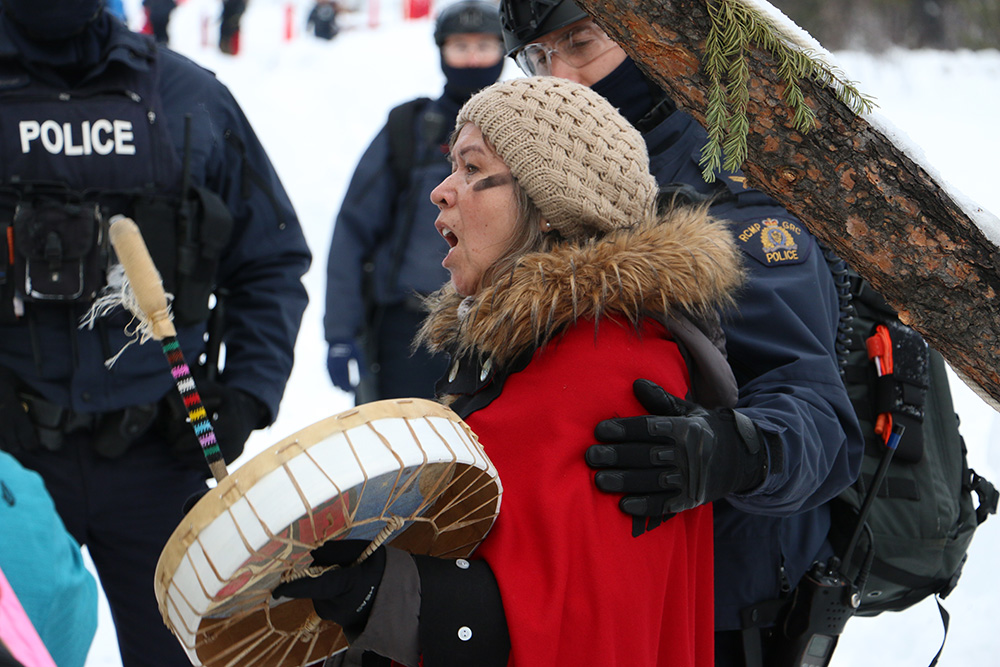More than a decade after the Declaration on the Rights of Indigenous Peoples was adopted by the United Nations General Assembly, there is growing momentum to implement this international human rights standard in Canadian law and policy.
Beyond various public commitments to honour the UN declaration, the Trudeau government has included references to it in laws passed in the Parliament’s last session, including new impact assessment legislation that governs review of projects like mines and pipelines.
In December, the federal government tabled a new bill to establish a framework for future implementation, including through law reform. Meanwhile, the B.C. legislature has already adopted similar implementation legislation of its own.
Given that Indigenous rights are affirmed in the Constitution and there is already an enormous body of court rulings defining those rights, does Canada really need a global Indigenous rights framework?
Our answer is a resounding yes.
In fact, we argue that a process for full implementation of the human rights standards set out in the UN declaration is both urgent and necessary.
The Supreme Court of Canada called reconciliation a “constitutional imperative.” Former chief justice Beverley McLachlin has said that the court’s affirmation of this imperative was a “defining moment” not only in Canadian law, but in the history of the nation.
Critically, when the Supreme Court talks about the “imperative” of reconciliation, it means something much more profound and challenging than simply trying to get along.
In Canada’s legal system, reconciliation is about working toward a just resolution of the fundamental conflict between Canada’s assertion of sovereignty over this land and the fact that Indigenous peoples’ sovereignty came first.
Up to now, federal, provincial and territorial governments have largely left this crucial work in the hands of the courts. This has been a mistake.
First Nations, Inuit and Métis remain extremely under-represented on the bench, and there has never been an Indigenous justice on the Supreme Court. Judicial training on Indigenous histories, cultures and rights is relatively recent and, as the Truth and Reconciliation Commission pointed out in its Calls to Action, much more needs to be done.
It’s fair to ask how well most judges are able to truly understand and reflect the perspectives of Indigenous peoples, or whether they appreciate the values and world views of the Indigenous peoples whose rights they are deciding. Certainly, there are very few who have even been exposed to Indigenous laws and legal traditions.
Furthermore, as the courts themselves have cautioned, the adversarial nature of litigation is not the way to get to reconciliation. Requiring First Nations to go to court over and over again to establish and defend our rights pits typically under-resourced claimants against the deep pockets of government and industry.
The result has been a slow, piecemeal evolution of jurisprudence that is not only full of gaps and contradictions, but also, as law scholar John Borrows and other colleagues have pointed out, ultimately remains very much one-sided.
This is why an implementation process for the UN declaration is so urgent. It addresses the very themes that the Supreme Court has said are essential to reconciliation, including recognition of Indigenous sovereignty or self-determination and Indigenous legal traditions.
Indigenous peoples were full participants in the creation of the UN declaration and, as a consequence, it engages more deeply with central issues such as Indigenous governance and consent that Canadian courts have touched on but not defined.
Legislation aimed at implementing the UN declaration is an opportunity to approach reconciliation on a systemic, co-ordinated and co-operative basis, rather than through a series of court cases. The process established through the B.C. legislation, and which the federal government is now proposing in Bill C-15, ensures that Indigenous peoples are full partners in that process, so that our perspectives and our laws can finally be given the proper consideration they are due.
This emerging approach to implementing the UN declaration is, quite simply, what governments in Canada should have been doing all along. ![]()
Read more: Indigenous, Rights + Justice, Politics















Tyee Commenting Guidelines
Comments that violate guidelines risk being deleted, and violations may result in a temporary or permanent user ban. Maintain the spirit of good conversation to stay in the discussion.
*Please note The Tyee is not a forum for spreading misinformation about COVID-19, denying its existence or minimizing its risk to public health.
Do:
Do not: